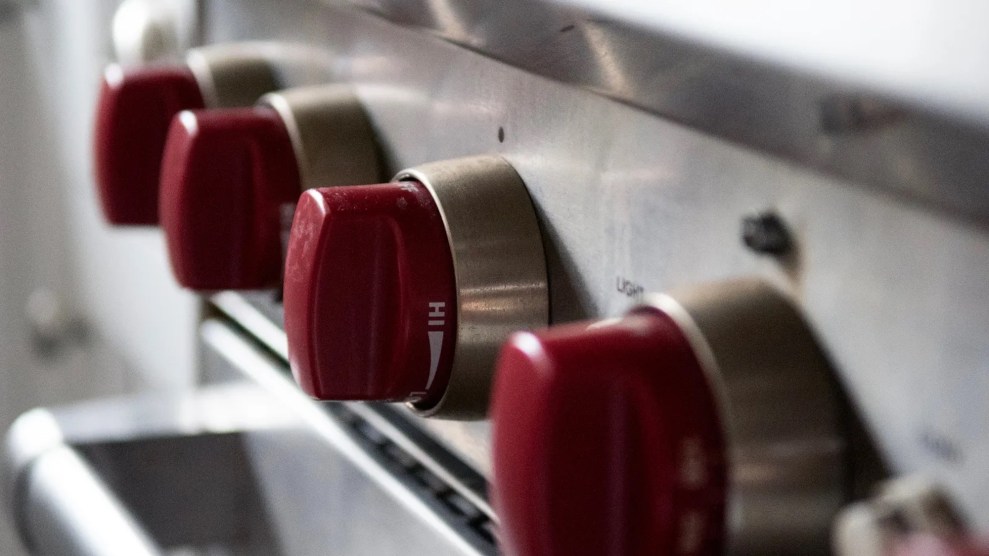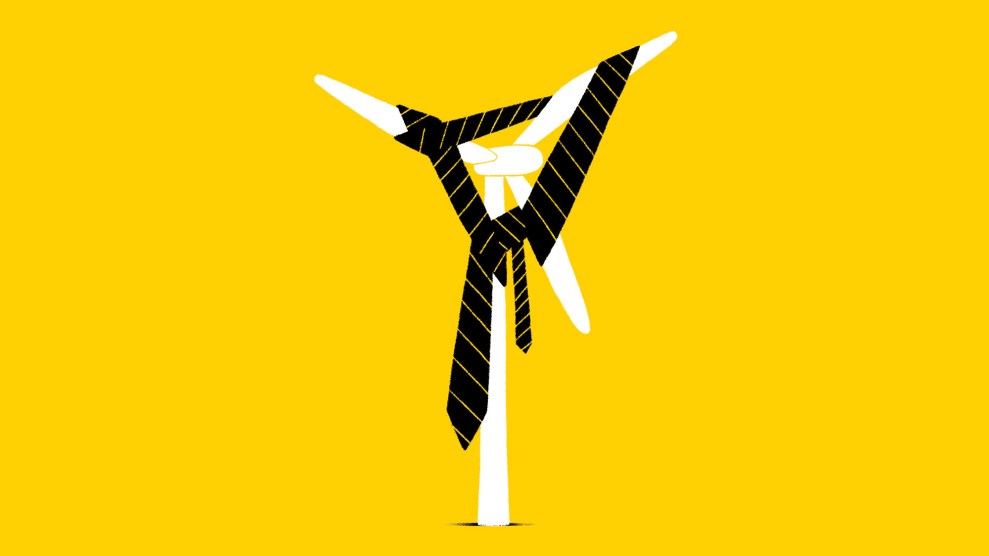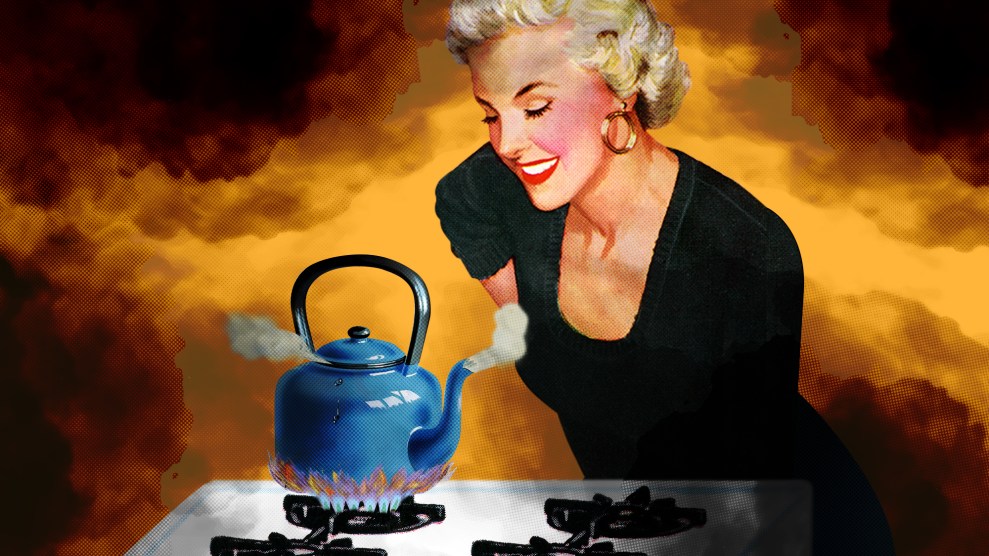
Michael Bocchieri/Getty/Grist
This story was originally published by Grist and is reproduced here as part of the Climate Desk collaboration.
One-third of American kitchens have gas stoves—and evidence is piling up that they’re polluting homes with toxic chemicals. A study this summer found that using a single gas stove burner on high can raise levels of cancer-causing benzene above what’s been observed from secondhand smoke.
It turns out gas stoves have much more in common with cigarettes. A new investigation by NPR and the Climate Investigations Center found that the gas industry tried to downplay the health risks of gas stoves for decades, turning to many of the same public-relations tactics the tobacco industry used to cover up the risks of smoking. Gas utilities even hired some of the same PR firms and scientists that Big Tobacco did.
Earlier this year, an investigation from DeSmog showed that the industry understood the hazards of gas appliances as far back as the 1970s and concealed what they knew from the public. The new documents fill in the details of how gas utilities and trade groups obscured the science around those health risks in an attempt to sell more gas stoves and avoid regulations—tactics still in use today.
The investigation comes amid a culture war over gas stoves. Towns across the country have passed bans on natural gas hookups in new buildings, and the federal Consumer Product Safety Commission is looking into their health hazards. The commission has said it doesn’t plan on banning gas stoves entirely after the mention of the idea sparked a backlash last December. That same month, a peer-reviewed study found that nearly 13 percent of childhood asthma cases in the United States were linked to using gas stoves. But the American Gas Association, the industry’s main lobbying group, argued that those findings were “not substantiated by sound science” and that even discussing a link to asthma was “reckless.”
It’s a strategy that goes back as far back as 1972, according to the most recent investigation. That year, the gas industry got advice from Richard Darrow, who helped manufacture controversy around the health effects of smoking as the lead for tobacco accounts at the public relations firm Hill + Knowlton. At an American Gas Association conference, Darrow told utilities they needed to respond to claims that gas appliances were polluting homes and shape the narrative around the issue before critics got the chance. Scientists were starting to discover that exposure to nitrogen dioxide—a pollutant emitted by gas stoves—was linked to respiratory illnesses. So Darrow advised utilities to “mount the massive, consistent, long-range public relations programs necessary to cope with the problems.”
The American Gas Association also hired researchers to conduct studies that appeared to be independent. They included Ralph Mitchell of Battelle Laboratories, who had also been funded by Philip Morris and the Cigar Research Council. In 1974, Mitchell’s team, using a controversial analysis technique, examined the literature on gas stoves and said they found no significant evidence that the stoves caused respiratory illness. In 1981, a paper funded by the Gas Research Institute and conducted by the consulting firm Arthur D. Little—also affiliated with Big Tobacco—surveyed the research and concluded that the evidence was “incomplete and conflicting.”
These studies didn’t just confuse the public, but also the federal government. When the Environmental Protection Agency assessed the health effects of nitrogen dioxide pollution in 1982, its review included five studies finding no evidence of problems—four of which were funded by the gas industry, the Climate Investigations Center recently uncovered. The EPA, which was investigating whether it should tighten nitrogen dioxide standards outdoors, called for more research to reduce the “uncertainties” of health effects, and didn’t strengthen the standards until more than a quarter-century later.
Today, as public opinion starts to turn on gas stoves, utilities continue to deploy techniques that mirror the tobacco industry’s. Last year, the gas industry hired a toxicologist to testify at a public comment hearing over gas stoves in Multnomah County, Oregon. Julie Goodman questioned the research around the health concerns of stoves and pointed to a review showing little reason for worry, but she did not mention that she was hired by the local gas utility NW Natural. Goodman told NPR that the views were her own and argued that scientists aren’t necessarily biased in favor of their funding source.
In response to the reporting from NPR and the Climate Investigations Center, Karen Harbert, the American Gas Association’s CEO, acknowledged that the gas industry has “collaborated” with researchers to “inform and educate regulators about the safety of gas cooking appliances.” Harbert claimed that the available science “does not provide sufficient or consistent evidence demonstrating chronic health hazards from natural gas ranges”—a line that should sound familiar by now.















